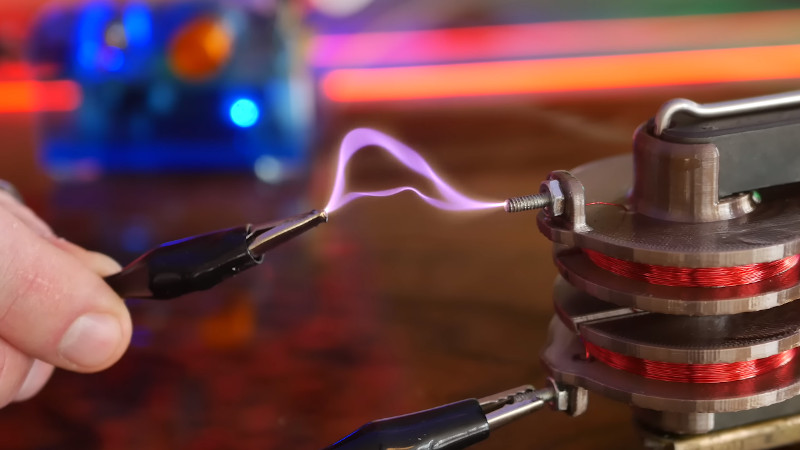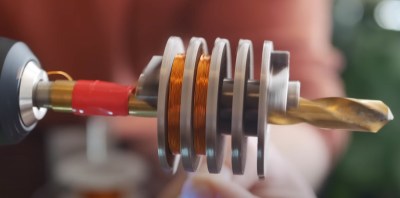

We’ve seen a number of people create plasma speakers over the years here at Hackaday, so at first blush, the latest Plasma Channel video from [Jay Bowles] might seem like more of the same. Even his overview of the assembly of the 555 timer circuit at the heart of the setup, as detailed as it may be, is something we’ve seen before.
But the back half of the video, where [Jay] talks about the flyback transformer used in this plasma speaker, really got our attention. You see, frustrated by the limited options on the market for AC flybacks, he set out to put together a custom transformer utilizing a 3D printed secondary former of his own design.

Armed with a spare core, [Jay] spent some time in CAD coming up with his secondary. Despite never having built a flyback before, his first attempt managed to produce some impressive sparks — that is, until it arced through the printed plastic and released the critical Magic Smoke. Inspired by this early success, he went back to the digital drawing board and cranked his way through several different iterations until he came up with one that didn’t self-destruct.
Once he had a coil that was working reliably, he hooked it up to his Bluetooth-augmented 555 circuit, and started playing some tunes from his phone. While it might not be our ideal way to listen to the latest episode of the Hackaday Podcast, we’ve got to admit that the audio quality was fairly impressive. Music coming through the air with no visible speaker element has an almost magical quality to it — this is definitely the sort of thing that would have gotten you burned at the stake back in the day.
Despite his troubles with the printed component, a look at the final result is a reminder of how simple a flyback transofmer really is when you get right down to it. A few windings of thick wire on one side of the core, a whole lot of windings of thin wire on the other side, and you’re good to go. Of course, a printed jig like this certainly makes for a neater final product, especially if you end up encapsulating the whole thing in epoxy.
Not interested in winding your own coil? [Jay] has put together an instructional video on building a high-voltage supply with the sort of commercially available flyback you’d find in a CRT. If it’s the singing plasma that’s got you interested, you might want to take a look at one of his earlier projects that was based on Honda ignition coils.

